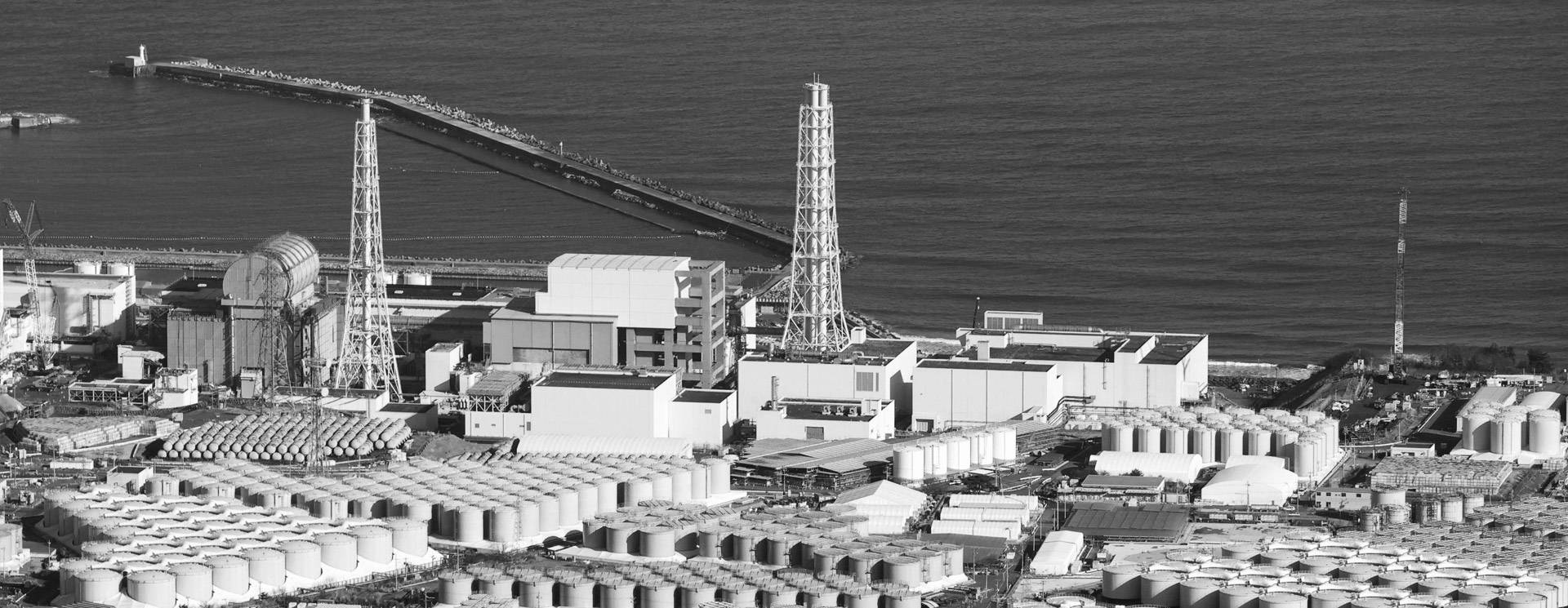已对日本东京电力控股株式会社发起环境公益诉讼
2011年3月11日,日本东北太平洋地区(福岛)发生里氏9.0级地震,引发海啸,导致福岛第一核电站发生核泄漏,并产生了大量用于冷却反应堆的受辐射的核污染水。2021年4月13日,日本政府召开内阁会议正式决定,将福岛第一核电站130万吨核污染水经过滤并稀释后于2023年春夏之际排海。据悉,海底隧道全长约1030米,目前已挖掘到预定终点,预计将在2023年6月底之前完成海底隧道的整体施工,排海作业最快7月开始。
日本政府罔顾国际社会基于科学提出的合理安全关切,无视国际反对声音和日本国内各界普遍质疑和强烈反对,一意孤行强推核污染水排海计划。
基于福岛核污染水中不仅有氚,还有碳14、钴60和锶90等大量放射性物质残留。一旦排放入海,这些放射性物质对全球海洋生态环境带来严重污染!由于其向海洋排放的核污染水放射性物质半衰期较长,可以通过海洋食物链在人体中富集,致癌致畸致突变,对人类的遗传基因产生重大的影响,对人类的生存安全产生严重威胁。
为了保护全球海洋的生态环境和维护全人类的健康安全,苏州工业园区绿色江南公众环境关注中心作为一家民间环保公益组织,有权利、有责任、有义务向日本东京电力控股株式会社(東京電力ホールディングス株式会社)发起公益诉讼,以法律的武器保护全球海洋的生态环境安全,保护全人类的生命健康。2023年5月24日,苏州工业园区绿色江南公众环境关注中心向中华人民共和国某海事法院提交了《民事起诉状》,对日本东京电力控股株式会社提起预防性环境民事公益诉讼,制止被告将核污染水排海的侵权行为,责令其承担与过错相适应的民事责任。目前显示该海事法院已签收。
苏州工业园区绿色江南公众环境关注中心
2023年5月25日
Environmental public interest litigation has been initiated against Japan's Tokyo Electric Power Holding Co.
On March 11, 2011, A 9.0 magnitude earthquake struck off the northeastern Pacific coast of Japan, triggering a tsunami. The disaster caused a nuclear leak at the Fukushima Daiichi nuclear power plant. In addition, large amounts of irradiated nuclear contaminated wastewater were generated to cool the reactors. On April 13, 2021, the Japanese government held a cabinet meeting and formally decided to discharge 1.3 million tons of nuclear contaminated wastewater from the Fukushima Daiichi nuclear power plant into the sea in the spring and summer of 2023 after filtering and dilution. It is reported that the total length of the submarine tunnel used for the sea drainage plan is about 1,030 meters, which has been excavated to the scheduled end, and the whole construction of the submarine tunnel is expected to be completed by the end of June 2023, with the sea drainage operation starting in July at the earliest.
The Japanese government ignored the reasonable safety concerns raised by the international community based on science, ignored international opposition and the general questioning and strong opposition from all circles in Japan, and was bent on pushing ahead with the plan to discharge nuclear-contaminated water into the sea.
Based on the fact that Fukushima nuclear contaminated wastewater contains not only Tritium but also a large number of radioactive substances such as Carbon 14, Cobalt 60 and Strontium 90 remain. Once discharged into the sea, these radioactive substances bring serious pollution to the global marine ecosystem!
Due to the long half-life of the radioactive substances of nuclear contaminated wastewater discharged into the ocean, they can be enriched in the human body through the marine food chain and cause cancer and mutation. It has a significant impact on human genetics and poses a serious threat to human survival and safety.
To protect the ecological environment of the global ocean and maintain the health and safety of all human beings, SIP Lvse Jiangnan Public Environment Concerned Centre, as a private environmental protection public interest organization, has the right, responsibility and obligation, to initiate public interest litigation against Tokyo Electric Power Holding Co. (東京電力ホールディングス株式会社) Ltd. to protect the ecological and environmental safety of the global ocean and the health of all human beings with the weapon of law.
On May 24, 2023, SIP Lvse Jiangnan Public Environment Concerned Centre submitted a Civil Complaint to a maritime court in the People's Republic of China, filing a preventive environmental civil public interest lawsuit against Japan's Tokyo Electric Power Holding Co. to stop the defendant's infringing behavior of discharging nuclear-contaminated water into the sea and to order it to bear civil liability commensurate with its fault. It currently shows that the maritime court has signed off on it.
SIP Lvse Jiangnan Public Environment Concerned Centre
2023/5/25
東京電力ホールディングス株式会社に対する環境公益訴訟が開始した
2011年3月11日、日本東北地方太平洋沖地震(マグニチュード9.0)が発生し、福島県が被災しました。津波だけでなく、福島第一原子力発電所で核燃料漏れを起こし、原子炉を冷却するために大量の被曝核汚染廃水が発生しました。2021年4月13日、日本政府は閣議を開き、福島第一原子力発電所の原子力汚染廃水130万トンをろ過・希釈して2023年春から夏にかけて海に放出することを正式に決定しました。全長約1,030メートルの海底トンネルは、予定の終点まで掘削され、2023年6月末に全体の工事が完了する見込みで、早ければ7月から汚染廃水放出作業を開始する予定と報道されています。
日本政府は、科学的根拠に基づき国際社会が提起した正当な安全性への懸念を無視し、国際的な反対運動や日本国内の各界から広く寄せられた疑問や強い反対を無視して、核汚染水の海洋放出計画を強行しようとしています。
福島原発の核汚染廃水には、トリチウムだけでなく、炭素14、コバルト60、ストロンチウム90などの放射性物質が残存していることを踏まえ、いったん海に放出されると、これらの放射性物質が世界の海洋生態系に深刻な汚染をもたらすと考えられます!海に排出された放射性物質は半減期が長いため、海の食物連鎖を通じて人体に濃縮され、ガンや奇形、突然変異を引き起こし、人間の遺伝子に大きな影響を与え、人類の生存に重大な脅威を与えています。
世界の海洋の生態環境を保護し、全人類の健康と安全を守るため、蘇州工業園区緑江南公共環境配慮センターは、民間の環境保護公益団体として、東京電力ホールディングス株式会社に対して公益訴訟を開始する権利、責任、義務を有しています。2023年5月24日、蘇州工業園区緑江南公共環境配慮センターは中華人民共和国のある海事裁判所に民事訴状を提出し、東京電力ホールディング株式会社に対して、核汚染水の海洋放出による被告の侵害行為を停止し、その過失に応じた民事責任の負担を命じる予防環境民事公益訴訟を開始しました。現在、海事裁判所には起訴状が届いているとのことです。
蘇州工業園区緑江南公共環境配慮センター
2023年5月25日
内容来源:绿色江南微信公众号
